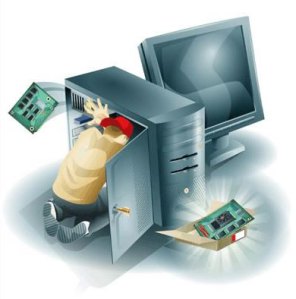Confidentiality agreements or contracts (NDA, in its acronym in English: Non Disclosure Agreement) are documents that oblige the parties (founding partners, employees, teams, collaborators, investors, industrial partners, etc.) not to share certain sensitive information with third parties.
As agreed ...
“The use of an NDA may be motivated by different reasons but, in general, it is an agreement by virtue of which the parties are obliged to respect the secrecy and confidentiality of the information that they are going to share, and to use it only for the purpose that remember ”, explains Ignasi Costas, lawyer and coordinating partner of the innovation and entrepreneurship area of Rousaud Costas Durán.
NDAs can be signed between two companies, between project partners, between partners and team members, between a company and an investor, between a company and an industrial partner, etc. and “they are used when certain information or documentation of a company or project is going to be shared regarding its business model, financial data, metrics, intellectual and industrial property… The party that is going to share this information considers it relevant and subject to confidentiality and wants to protect it in some way, ”argues Pablo Mancía, co-founder of Delvy Asesores Legales.
Costas maintains that the duties are not the same if you do an NDA with an investment partner than with an industrial one. “The duties of diligence should not be the same with one as with another. You must be much more cautious when you plan to do an NDA with an industrial partner than with a venture capital, because the latter is not dedicated to copying ideas to anyone. The content and the more or less aggressiveness (for example, the penal clauses) of the NDAs have to be in line both with the importance of the information that is shared and with whom it is shared. A venture capital investor who wants to invest in your project is not the same as a company in the sector that may have the ability to start a competitor activity with yours ”.
This expert points out that there is a lot of ignorance on the part of companies about the importance of NDAs to protect industrial secrets: “More and more people do not have patent protection or who cannot pay the costs of a patent and do not know how to face this protection process. And confidentiality agreements are crucial for this. "
Industrial secrets
Costas stresses that the NDAs "are essential instruments for structuring an adequate policy for the protection of industrial secrets, especially in those companies that, either due to their nature, business opportunity or, simply, costs, do not have protection of their knowledge through patents or other rights ”.
But this should not confuse the subject of a patent with that of an NDA, which is not designed a priori to protect a patent. For this, there are other mechanisms (www.oepm.es Y www.wipo.int/portal/es). The NDAs are very useful to protect the information related to that potential patent that one party wants to share with another.
"Many entrepreneurs think that confidentiality agreements serve to protect ideas, but business ideas are not protected so much with the NDA, but the information on the development of those ideas," explains Mancía.
This expert recommends, given the complexity of confidentiality agreements, “go to an expert to assess when to sign an NDA. In addition, it is important to first investigate with what type of person or company we are going to initiate a confidentiality relationship in order to know their trajectory and their way of working ”.
Non-compete commitments
Mancía also emphasizes not to confuse NDAs with non-compete commitments. “Although in the same contract one and the other can be regulated jointly. In this sense, it would be important to set the duration of the non-competition (which is normally the same as the contractual relationship between the parties), but an additional post-contractual period is usually established, which generally cannot be longer than two years. For example, in franchise contracts, confidentiality agreements are usually established on the know-how that the franchisor gives to the franchisee and, in many, with the obligation to return and even destroy manuals, studies, reports, etc. ”.
The contextualization of the NDA is very important. "What does this mean? That the type of information to be shared and the reason for sharing said information with the other party must be explained in the agreement itself, ”says Costas.
What should we reflect?
The usual structure of a confidentiality agreement is as follows:
First, it must be clear who the parties are who will sign the agreement and share information. "Also, why is this agreement being signed, that is, why is a relationship going to be established: services between the parties, or a relationship between partners, or an employment relationship, or with investor and / or industrial partners, etc. . ”, Indicates Mancía. And, of course, determine what is the object of the confidential information that you want to protect.
“It is not enough to say that one party will give the other certain confidential information about such a thing, because that is very ambiguous and, in the case of a claim, it could not be proven what specific information was shared and for what purpose. That is why it is important to limit the concept of the information in question that you want to protect. For example, if it will be information on the business model, financial information, technological information subject to intellectual and industrial property rights, software development rights, or web platform metrics, etc. ”, points out Mancía.
Costas adds that, in some cases, “a more detailed description may be necessary. For example, when the information we want to protect includes more than one scope or is very large, we can add an annex to the NDA ”.
According to Mancía, it is also necessary to make clear the purpose for which that information will be used and for what exclusive purpose the receiving party may use it. "Also, what is not considered confidential information." And finally, the responsibilities, if the agreement is breached.
Source
entrepreneurs.es
Javier Escudero














No Comment